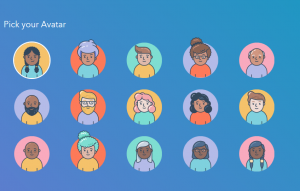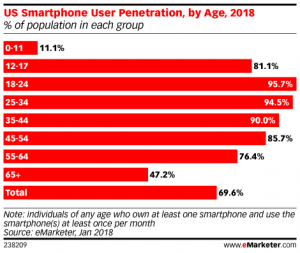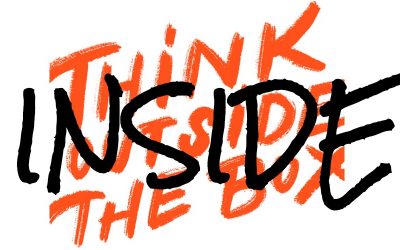Boomers are not all the same
Hubspot recently launched a tool to develop a buyer persona. We have to admit we made a little fun of it on Twitter.

Hubspot has a new tool to develop buyer personas. Looks cute, but I stalled on the first step when looking for me. No blue eyes. My only option was the pink haired white woman in the middle. 12 people and 3/5 men have no hair. What is @hubspot trying to tell us about diversity? pic.twitter.com/glm2TCqNXZ
— BRKLYNWEB (@brklynweb) August 20, 2018
But the idea is good and kudos to them for at least thinking above 40 years of age even if the choice of avatar is strange and the advice on naming them is quaint. (Marketing Mary, Finance Fred? How about Banker Bill and Housewife Helen while we’re at it?)
Let’s face it, you cannot work out your brand voice if you don’t know who you are talking to. By the same token, with a diverse age demographics, you cannot talk to everyone within a generation the same way.

Take boomers, people born post WWII around 1945 (74) up until 1964 (55). That is a quite diverse group in itself, with probably people still working while others are retired. Some still have kids in high school let alone college, while others are grandparents, or both. Second and third marriages can create diverse families!
So you cannot hear “boomer” and think “retired”. And you certainly cannot think “old”. Not when the retirement age is heading towards 70. Nor can you think digitally clueless, not when it was this very generation that spearheaded the development of the Internet and all that came after. In fact boomers were early adopters of personal computers and email.
You might wonder where they stand in the use of smart phones. In fact, the majority of younger boomers (55-64) have a smartphone, but they are not as attached to them the same way as people younger than them can be. Before we infer that means they are not as digitally connected, we need to remember that the trend of younger generations being phone-only with no desktop (other than at work) to use as an alternative to their smart phones. Whereas younger boomers simply do not see smart phones as their device of choice because they were raised in the era of personal computers.
While it is true that boomers are not early adopters of other wearables and they still watch traditional as well as digital TV, almost 85% are internet users. They represent a large population that cannot be ignored along with their personal computers. It should not all be mobile first.




